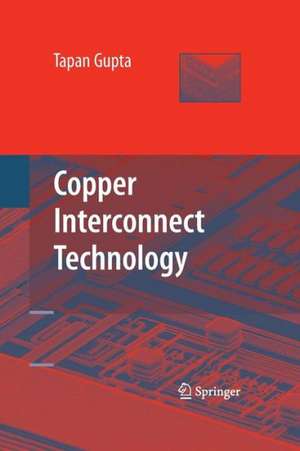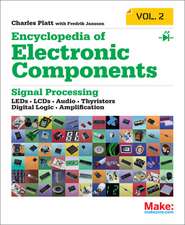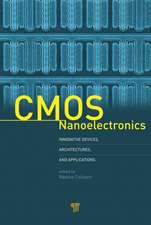Copper Interconnect Technology
Autor Tapan Guptaen Limba Engleză Paperback – 29 noi 2014
| Toate formatele și edițiile | Preț | Express |
|---|---|---|
| Paperback (1) | 951.47 lei 6-8 săpt. | |
| Springer – 29 noi 2014 | 951.47 lei 6-8 săpt. | |
| Hardback (1) | 961.55 lei 6-8 săpt. | |
| Springer – 7 aug 2009 | 961.55 lei 6-8 săpt. |
Preț: 951.47 lei
Preț vechi: 1160.32 lei
-18% Nou
Puncte Express: 1427
Preț estimativ în valută:
182.08€ • 197.72$ • 152.95£
182.08€ • 197.72$ • 152.95£
Carte tipărită la comandă
Livrare economică 22 aprilie-06 mai
Preluare comenzi: 021 569.72.76
Specificații
ISBN-13: 9781489985118
ISBN-10: 1489985115
Pagini: 444
Ilustrații: XIX, 423 p.
Dimensiuni: 155 x 235 x 23 mm
Greutate: 0.62 kg
Ediția:2009
Editura: Springer
Colecția Springer
Locul publicării:New York, NY, United States
ISBN-10: 1489985115
Pagini: 444
Ilustrații: XIX, 423 p.
Dimensiuni: 155 x 235 x 23 mm
Greutate: 0.62 kg
Ediția:2009
Editura: Springer
Colecția Springer
Locul publicării:New York, NY, United States
Public țintă
ResearchCuprins
Dielectric Materials.- Diffusion and Barrier Layers.- Pattern Generation.- Deposition Technologies of Materials for Cu-Interconnects.- The Copper Damascene Process and Chemical Mechanical Polishing.- Conduction and Electromigration.- Routing and Reliability.
Recenzii
From the reviews:
“This book addresses the major issues encountered with the use of copper for interconnection lines in microelectronics. It combines materials, technology, and applications to address the needs of the microelectronics researcher. … This book is filled with graphs, data, properties, applications, and methods that will provide both the graduate student in microelectronics and the working microelectronics professional with current information on copper interconnection technology. It is an outstanding reference text that provides an excellent source of information on current copper interconnect technology and future possibilities.” (Electrical Insulation Magazine, Vol. 27 (2), March/April, 2011)
“This book addresses the major issues encountered with the use of copper for interconnection lines in microelectronics. It combines materials, technology, and applications to address the needs of the microelectronics researcher. … This book is filled with graphs, data, properties, applications, and methods that will provide both the graduate student in microelectronics and the working microelectronics professional with current information on copper interconnection technology. It is an outstanding reference text that provides an excellent source of information on current copper interconnect technology and future possibilities.” (Electrical Insulation Magazine, Vol. 27 (2), March/April, 2011)
Textul de pe ultima copertă
Since overall circuit performance has depended primarily on transistor properties, previous efforts to enhance circuit and system speed were focused on transistors as well. During the last decade, however, the parasitic resistance, capacitance, and inductance associated with interconnections began to influence circuit performance and will be the primary factors in the evolution of nanoscale ULSI technology. Because metallic conductivity and resistance to electromigration of bulk copper (Cu) are better than aluminum, use of copper and low-k materials now prevails in the international microelectronics industry. However, as the feature size of the Cu-lines forming interconnects is scaled, resistivity of the lines increases. At the same time electromigration and stress-induced voids due to increased current density become significant reliability issues. Although copper/low-k technology has become fairly mature, there is no single book available on the promise and challenges of these next-generation technologies. In this book, a leader in the field describes advanced laser systems with lower radiation wavelengths, photolithography materials, and mathematical modeling approaches to address the challenges of Cu-interconnect technology.
Caracteristici
Provides a detailed description of critical next-generation materials and technology for microelectronics Suitable for use as a teaching text in graduate programs and industry short courses Significant international appeal, especially in countries such as Tawian, China, South Korea, and Singapore with extensive electronics manufacturing capabilities Includes supplementary material: sn.pub/extras

















